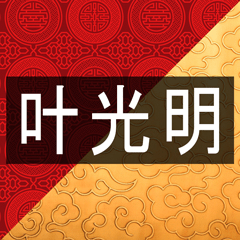
 China and the Roman Catholic Church
China and the Roman Catholic Church
When Pope Francis died on Monday April 21st governments around the world swiftly issued glowing tributes to the late Catholic leader and Vatican head of state. But China’s state media held off on their response. “China expresses condolences for the passing of Pope Francis,” was the low-key comment of a Chinese foreign ministry spokesperson on April 22, when asked for comment at a daily news briefing. The official said that “in recent years, China and the Vatican have maintained constructive contacts and carried out beneficial exchanges. China is willing to work with the Vatican to promote the continued improvement of China-Vatican relations.” Significantly, though the official response was so muted, yet the news of Pope Francis's death was widely reported and discussed on social media in China, where it became a trending topic.
Before his death, Pope Francis repeatedly expressed his desire to visit China, something no Pope before him had ever done. That did not happen, but Pope Francis tried hard to build relationships with the Marxist government in China. In 2018, there was a historic development, a joint accord between China and the Vatican, the “Provisional Agreement between the Holy See and the People's Republic of China on the appointment of Bishops”. It agreed to a compromise regarding any new bishops. “The specifics of the deal have not been made public, but Reuters reported that included a framework in which Chinese authorities and local communities would put forth names of new bishops that the Vatican would approve.” The agreement, first signed in 2018, and renewed for the third time in September 2024, is effective for four years till 2028.
A ChinaSource writer commented that “Francis and the other church leaders who worked on the agreement believed that, though imperfect, it was a necessary first step that they hoped will eventually bear fruit. Francis assured China’s Catholics that he prayed for them daily, and made decisions, even those felt as painful by China’s faithful, namely the decision to accept the ordinations of seven ‘official’ bishops originally ordained without papal mandate, after ‘much time reflection and prayer, seeking the true good of the Church in China.’ Francis’s words make clear his desire to heal the wounds of the past, restore full communion among all Chinese Catholics, and lead to a phase of greater fraternal cooperation.”
There were critics within the Catholic leadership of Pope Francis’ policy, notably Joseph Cardinal Zen, Archbishop emeritus of Hong Kong. “Cardinal Zen was the most prominent and perhaps the fiercest opponent of the agreement with the Chinese authorities. He even travelled to Rome and attempted unsuccessfully to personally dissuade the pope from entering into the agreement with Chinese authorities in 2018.”
The Chinese authorities have not consistently honoured the agreement. Though the Provisional Agreement granted veto power to the Holy See when reviewing the bishop nominees that the Chinese have put forward, yet “in recent years, Vatican officials have acknowledged that Beijing has violated the agreement on multiple occasions.” For example, Bishop Joseph Shen Bin, installed by Chinese authorities in Shanghai in 2023 without Vatican approval, was later recognised by Pope Francis ‘for the good of the diocese’ – a concession that sparked controversy.”
The newly elected Pope Leo XIV, the first pope from the United States, has a difficult China decision to make, though in the short term it is more than likely that he will continue along the same path as Francis.
Pray for the new Pope Leo XIV to make the right moves concerning the Catholic Church in China.
Pray for those Catholics in China who struggle with the decisions made, especially those suffering for their faith.
Pray for a Holy Spirit revival in the Catholic Church in China.

